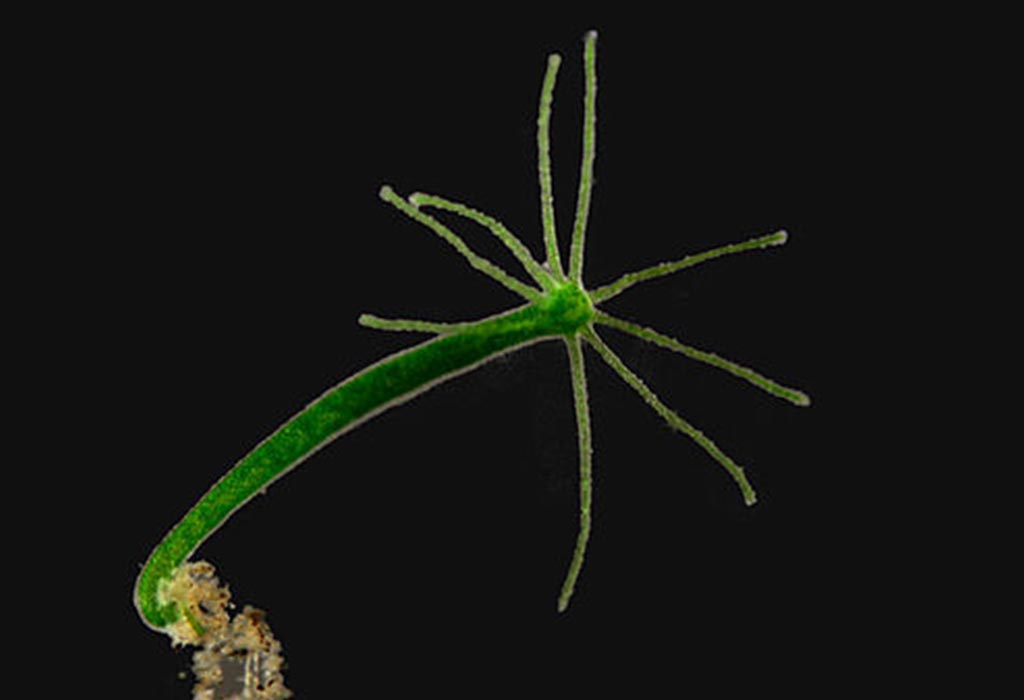Plants don’t live forever due to a natural biological process called senescence. As plants age, their cells become damaged, leading to a decline in growth, reproduction, and eventually death.
Despite this inevitability, many plant species have evolved various strategies to prolong their lifespan, such as producing new roots or stems, storing resources, and reproducing earlier in life. However, even these strategies only delay the eventual decline and death of the plant.
Understanding the mechanisms behind plant senescence is important for improving crop yields and for the broader fields of agriculture and horticulture. It also allows us to appreciate the beauty and fragility of plant life and the importance of preserving our natural environment.

Credit: www.science.org.au
The Biology Of Plant Life Cycles
Why don’t plants live forever: the science behind their finite lives.
Have you ever wondered why plants don’t live forever? Despite their unique ability to regenerate, plants have finite lives. Let’s delve into the biology of plant life cycles to understand why this happens.
Overview Of Plant Life Cycles
Plants undergo three stages of growth: vegetative, reproductive, and senescence. The first stage begins with seed germination and ends with the development of the first reproductive structures. The second stage involves the formation of flowers, pollination, and production of seeds.
The final stage is when the plant slowly deteriorates, signaling the end of its life cycle.
Explanation Of The Three Stages Of Plant Growth: Vegetative, Reproductive And Senescence
Vegetative stage:
During the vegetative stage, the focus is on the growth and development of leaves, stems, and roots. This stage sets the foundation for the subsequent stages and can last from a few weeks to several years, depending on the plant species.
Photosynthesis is at its peak during this stage, ensuring the plant has enough energy to sustain itself.
Reproductive stage:
The reproductive stage marks the transition from growth to reproduction. This is when the plant produces flowers and fruit, and it becomes more vulnerable to diseases and pests. Once pollinated, the plant uses most of its energy to produce and mature seeds.
After the seeds have matured and been dispersed, it marks the end of the reproductive stage.
Senescence stage:
The senescence stage is the final stage of a plant’s life cycle. At this stage, the plant shows signs of aging, such as yellowing leaves, weak stems, and reduced growth. The plant’s cells gradually lose their ability to divide and regenerate, leading to deterioration and eventual death.
Brief Discussion On How Plants Age Differently Than Animals
Plants age differently than animals, mainly because they continue to grow as they age. Unlike animals, which reach a point of maturity and stop growing, plants can theoretically continue growing and developing indefinitely. However, their ability to do so becomes limited by various factors, including environmental stressors, diseases, and genetic factors.
The biology of plant life cycles plays a significant role in determining the lifespan of plants. Understanding the three stages of plant growth, including the vegetative, reproductive, and senescence stages, can help to increase the lifespan of plants through better soil management and other cultivation practices.
Causes Of Plant Senescence
Why don’t plants live forever: the science behind their finite lives.
Plants, like any living organism, have a finite lifespan. Understanding the causes of plant senescence, or aging, can help us develop strategies to increase their productivity and improve their lifespans. There are many reasons why plants age, including natural causes, genetic and epigenetic mechanisms, environmental factors, and hormonal changes.
Let’s take a closer look at each of these factors.
Natural Causes Of Senescence
As plants grow and mature, they naturally lose their ability to reproduce and eventually die. This natural aging process is known as senescence. Some natural causes of senescence include:
- Shortening of telomeres: Over time, the protective caps at the end of chromosomes, known as telomeres, become shorter. This shortening triggers the onset of senescence, leading to cell death and ultimately, plant death.
- Oxidative stress: Oxidative stress occurs when there is an imbalance of free radicals and antioxidants in the plant. This can lead to dna damage, cell death, and eventually, senescence.
The Role Of Genetics And Epigenetics In Senescence
Genetics plays a significant role in plant senescence. The genetic makeup of a plant determines its lifespan, as well as its ability to resist pathogens and tolerate environmental stressors. Epigenetics also plays a crucial role in senescence. The chemical modifications that occur to the dna can influence gene expression, and ultimately, the onset of senescence.
- Epigenetic modifications: Changes in dna methylation and chromatin structure can activate or deactivate genes, leading to senescence.
- Genetic factors: Different plant species have different lifespans, which depend on their genetic makeup.
Environmental Factors That Affect Plant Senescence
Environmental factors such as temperature, humidity, and light intensity can have a significant impact on plant senescence. The following are some examples of environmental factors that affect plant senescence:
- Temperature: Plants that are exposed to high temperature and humidity tend to age more quickly than plants grown in cooler environments.
- Light intensity: Plants grown in low light conditions may senesce prematurely.
- Pathogens and diseases: Pathogens and diseases can lead to premature aging and death in plants.
Discussion On The Role Of Hormones In Plant Development And Senescence
Plant hormones play a key role in various aspects of plant growth and development, including senescence. As plants age, their hormonal balance changes, leading to senescence.
- The role of auxins: Auxins stimulate cell division and elongation, but excessive auxin can lead to senescence.
- The role of cytokinins: Cytokinins promote cell division and delay senescence.
- The role of ethylene: Ethylene is a hormone that promotes senescence and apoptosis in plants.
To conclude, plants have a finite lifespan due to various natural causes, genetic and epigenetic mechanisms, environmental factors, and hormonal changes. Understanding the causes of plant senescence can help us develop strategies to improve the longevity and productivity of crops.
Mechanisms Of Aging And Death In Plants
Plants contribute to the essential elements of our daily lives in various ways, from providing food and oxygen to serving as building materials and medicines. Despite their importance, plants, like all living organisms, have a finite life span. In this blog post, we will discuss the mechanisms behind aging and death in plants.
Explanation Of The Mechanisms Of Aging In Plants
Aging is a complex phenomenon caused by numerous factors, including physiological, genetic, and environmental factors. Plants undergo a similar aging process as animals and humans do, but there are some differences. The mechanisms of aging in plants include:
- Loss of the ability to divide and differentiate
- Accumulation of damage caused by environmental and other factors
- Decline in metabolism and photosynthesis
- Reduction in plant hormone levels
The Role Of Oxidative Stress In Aging
Oxidative stress occurs when the production of reactive oxygen species (ros) exceeds the plant’s capacity to remove them. Ros, such as hydrogen peroxide, damages cellular components such as lipids, proteins, and dna. It leads to fatigue, decreases photosynthetic efficiency, and ultimately, cell death.
When moderate, oxidative stress may be beneficial, similar to exercise for humans, as it can enhance the antioxidant defense system in the plant and make it more resistant to further stress.
- Increase in ros production can cause oxidative stress
- Ros cause damage to cellular components
- Moderate oxidative stress can be beneficial
- Oxidative stress can enhance the antioxidant defense system of plants
The Role Of Telomeres And Telomerase In Aging
Telomeres are sequences of dna at the end of chromosomes that protect them from damage. As cells divide, telomeres shorten, and eventually, they become so short that the cell can no longer divide. At this point, the cell is thought to senesce, a process in which the cell is alive but no longer dividing.
Telomerase is an enzyme that can add telomeres back to the ends of chromosomes, extending cell life. Telomeres and telomerase play a vital role in the aging of plants.
- Telomeres protect chromosomes from damage
- Shortening of telomeres leads to cell senescence
- Telomerase can extend cell life by adding telomeres back to chromosomes
- Telomeres and telomerase play a vital role in plant aging
The Relationship Between Metabolism And Aging In Plants
Metabolism is the sum of all chemical reactions taking place in the plant body. As plants age, the metabolism slows down, reducing the energy supply and leading to the accumulation of cellular damage. This damage leads to a decrease in physiological function and ultimately cell death.
Other factors that contribute to a plant’s metabolism changes include hormonal imbalance and changes in gene expression levels.
- Metabolism is the sum of chemical reactions in the plant body
- As plants age, metabolism slows down
- Reduced energy supply leads to accumulation of damage and decreased function
- Metabolism changes can be due to hormonal imbalances and changes in gene expression levels
The mechanisms of aging and death in plants are multi-faceted. Understanding these mechanisms can provide insights into how to extend plant lifespans, leading to a better understanding of plant growth, development, and ultimately, the development of new agricultural techniques.
Theories Of Aging In Plants
Why don’t plants live forever: the science behind their finite lives
Plants are an essential part of our ecosystem, creating the oxygen we breathe and providing a crucial food source. But why don’t they live forever? Theories have been proposed over the years, ranging from environmental factors to genetic manipulation. In this blog post, we will explore the current theories on plant aging and why it happens.
Overview Of Current Theories On Aging In Plants
Plant aging is a complex process influenced by a range of factors. Current theories suggest that both environmental and genetic factors contribute to plant aging. The most widely accepted theories are:
- Programmed aging theory
- Environmental stress theory
- Damage accumulation theory
Discussion On The Programmed Aging Theory
According to the programmed aging theory, plants have a genetically controlled lifespan. Just like animals, plants go through a series of developmental stages and eventually die. The cellular mechanisms behind these processes are still not well understood, but some research suggests that this programmed aging is regulated by specific genes.
Research studies have explored the role of telomeres, the protective ends of chromosomes, in regulating programmed aging. As cells divide, telomeres gradually become shorter, leading to cell death eventually.
However, some plants seem to have the ability to extend their lifespan. In some species, such as trees, certain cells remain undifferentiated and can continuously divide, contributing to their long lifespan.
The Role Of Evolution In Plant Aging
Plants have been evolving for over 450 million years. During this time, they have developed mechanisms to adapt to environmental stresses and changes, such as drought, disease, and insect attacks. However, these mechanisms are not infallible, and as plants age, they become more susceptible to these stresses.
Evolution may also play a role in regulating programmed aging. Plants may have developed mechanisms to ensure that older parts of the plant die to give the younger, healthier parts a better chance of survival.
The aging of plants is a complex process influenced by a range of factors, including genetics and environmental stress. The programmed aging theory suggests that plants have a genetically controlled lifespan, while evolution has led to the development of mechanisms to adapt to environmental changes.
Understanding these mechanisms could lead to discoveries that help plants live longer and be more resilient to environmental stresses.
Frequently Asked Questions For Why Don’T Plants Live Forever
Why Do Plants Die After A Certain Lifespan?
Plants meet their demise when their cells get old and stop functioning as they should. And since their cells
cannot divide like animals, they can’t replace dead cells, leading to the eventual death of the plant.
Can We Increase A Plant’S Lifespan?
While we can’t stop the natural process of a plant’s death, we can prolong it with proper care and maintenance. For instance, pruning, watering, and fertilizing can all boost the lifespan of a plant.
What Are Some Common Causes Of Plant Death?
Plant death can result from various reasons but mostly due to inadequate water supply, nutrient deficiency,
pests, non-favorable environmental conditions, and disease are among the most common.
Are There Plants That Can Live Forever?
Yes, some plants are known to live for centuries, if not longer. Examples include sequoias, bristlecone pines,
and flowering plants like hydras and jellyfish that can revert to their juvenile stages and start anew.
Can Plant Death Have Any Positive Impact?
While plant death may seem negative, it’s a key part of the earth’s life cycle like the decomposition process allows
the release of important nutrients back to the soil. Additionally, plant death provides resources for other living organisms.
How Can We Deal With The Death Of A Plant?
One way to deal with the death of a plant is to compost it to replenish soil nutrients. Alternatively,
you can also repurpose certain parts of the plant to create decorations or potpourri as a memento of its life.
Conclusion
That’s great! I can definitely help you out with that. Here’s my attempt at the concluding paragraph for the blog post titled “why don’t plants live forever”: the limited lifespan of plants can be attributed to various factors such as genetic programming, environmental stress, disease and nutrient depletion.
While humans strive to extend their lifespan through various lifestyle choices, plants have developed their own mechanisms to ensure the survival of the species. By investing in reproduction and seed dispersal, plants ensure their progeny has the best chance of surviving and evolving in changing environments.
It is fascinating to see how different species have evolved over millions of years to adapt to various challenges and sustain life on earth. We may never find a way to make plants live forever, but we can certainly learn from them and appreciate their role in the ecosystem.
As we continue to explore the mysteries of nature, we can only hope to uncover more secrets that will inspire us to appreciate and protect our planet for generations to come.


